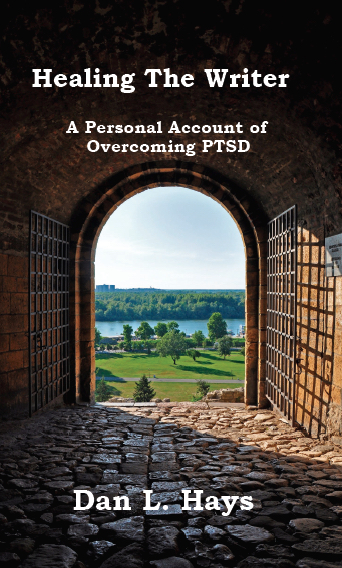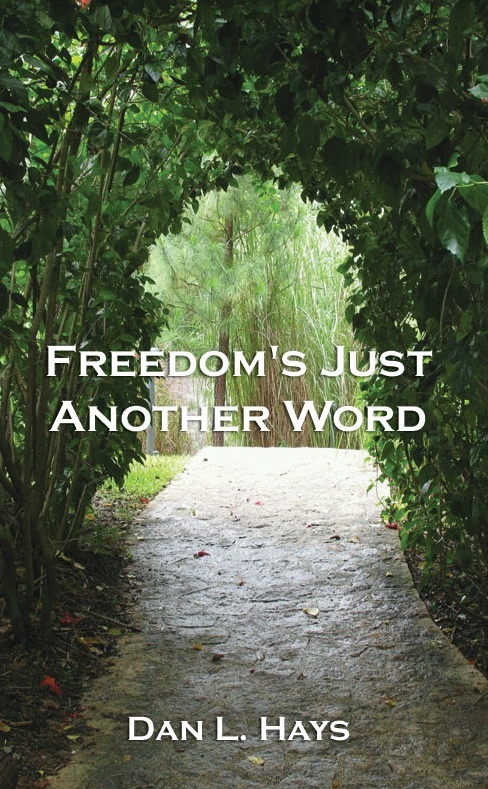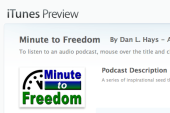In the fall of 1990, I had a vision – I wanted to write novels of hope. I had taken a 19th Century American literature course, and the teacher had said, “in 19th century American novels, you expected a happy outcome. In 20th century novels, you typically expect a negative or unhappy outcome.” I didn’t like that trend, and wanted to do something different.
The movie Dances With Wolves had just come out, and it really sparked something in me. I realized that I wanted to explore a time in my Dad’s life I knew little about.
In 1967, when I was 17, we were living in Oklahoma City when my Dad’s drinking hit bottom. My aunt and uncle came and picked up my Mom, my 3 sisters and myself, taking us back to Fort Worth to live with my maternal grandmother. Dad disappeared for a while, then later returned to Fort Worth, somehow changed. He sobered up and got into recovery, and reclaimed the world he had lost. I never knew what had happened to him during the time he was gone, other than a vague comment my Mom made about him going and working on the wheat harvest, which he had done in high school. I never thought I would see him again, and later wondered what his life had been like during the time while he was gone.
He died before it ever occurred to me to ask him about it. I began working on how to tell that story, and after I wrote the first two chapters, I suddenly realized – if I explored this thread fully, I had – a novel of hope! It was a tremendously empowering moment.
In the spring of 1991, I quit my job, went up to Oklahoma and worked on the wheat harvest, to try and imagine what my Dad’s life was like after we left, and what might have happened to him. How I got there is a story of its own: Dances With Wolves Filmsite.
The book I wrote in 1993 was my best guess as to what happened. It was entitled Nothing Left To Lose. It was a novel, written from a very loving and generative perspective. But how did I get to that loving place in describing a man who had been violent toward me when I was a teenager? I later realized that I needed to flesh out the back story. I will do so in several books, beginning with my first published memoir, Freedom’s Just Another Word, about the time around his death and my healing process. The reason I never published this novel will be the topic of the second book I will publish – Healing The Writer; writing that book freed my creativity!
I now plan to publish Nothing Left To Lose, the novel about my Dad written from a loving and healed perspective.
The novel begins like this:
Chapter 1
Eyes downcast, he trudged along, conscious of the uneven surface along the shoulder of the highway, stumbling occasionally on chunks of gravel or small pebbles. He looked up periodically at the cars speeding past, as if to keep his bearings. His face was lined and weary and his entire body ached. He was wearing a worn brown corduroy jacket, a wrinkled plaid flannel shirt, dark blue polyester pants, white socks and cordovan loafers.
It was about 5 pm and the sun had just set. Night was approaching rapidly and the chill of February in 1967 was harshened by a brisk wind which picked up in gusts as he walked. He tried to walk faster, his hands deep in his pockets, but had to step carefully so not to turn an ankle on the uneven surface beside the roadbed. His vision was limited by the flash of oncoming headlights.
He had been told there was a boarding house in town where he could get a room for the night, and he plodded on, the directions vaguely held in a corner of his consciousness.
“We’re sorry,” they’d said at the detox center, “but all we can do is provide you a place for 5 days. We just help people dry out. Then we have to give the bed to someone else.” They had directed him to the boarding house, wished him well, given him back his clothes and money, and sent him on his way.
His feet hurt, his whole body ached, he craved a drink but knew that he must make the most of this chance. There was another pain, too, an emotional void when he thought of all he had left behind, all he had lost. He wondered where they were now, but he knew he could do nothing for them. Yet he longed for their voices, for any source of warmth and comfort to relieve this coldness, and the blackness in his soul.
——————————–
Sitting and looking out the big picture window at the front of Miss White’s Boarding House, Peter Sanders watched the occasional car pass, and a few blocks away he could see the busier traffic on the main street. Busy, he thought, for our town. Cornell, Oklahoma wasn’t exactly New York, he chuckled to himself, but it was rush hour here, with cars heading home to supper.
At the corner of the main road where it intersected his street, he saw a figure hesitate, look at street signs, and uncertainly begin to walk toward him. Another drunk out of the center, he thought to himself, betting that the man was headed here. This was where they mostly came when they had nowhere else to go.
Peter got up, stepped to the door of the kitchen, cracked it open. “Miss Vera,” he called.
“Yes, Peter?” she replied.
“I think we got a visitor coming in.”
“Alright. Send him through to me.” Miss Vera stepped wearily into the living room. She had seen so many come through her doors that the novelty of it had long since worn off.
Peter sat in one of the overstuffed chairs in the living room, extending his feet toward the large space heater in the corner. Miss Vera went back into the kitchen. The man opened the door.

Ben Hays, my Dad, in 1971.
“Step in and warm up, stranger,” Peter called. He stepped quickly and gratefully over in front of the space heater, holding his hands out over it, shivering slightly. Peter studied him. He was about six feet tall, slender yet sturdy, with dark circles under the eyes, sunken cheeks. He had dark brown hair, cut short, rumpled and uncombed, and his clothes weren’t heavy enough for February. The clothes looked of good quality, but were tired from overuse. His hands looked soft. There were no calluses or marks, so he was probably not a laborer. His shoulders slumped wearily, hands twitched, and he had an almost nauseous look on his face. Peter imagined him to be a businessman gone to seed – gone down far and fast, too. Peter knew the look – he’d had it himself recently enough.
Read Full Post »






















